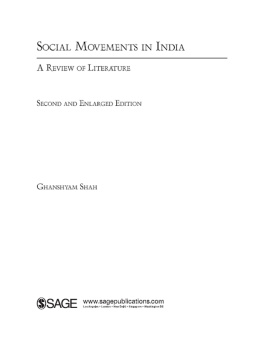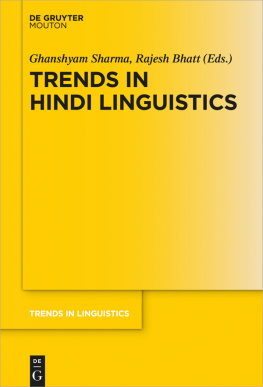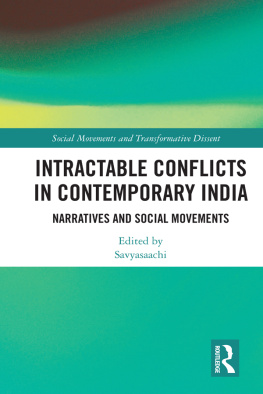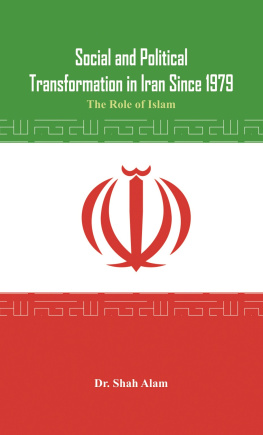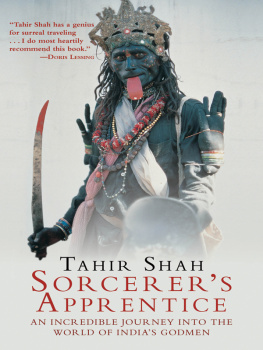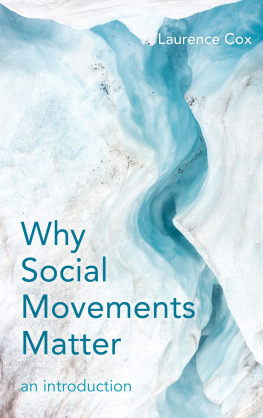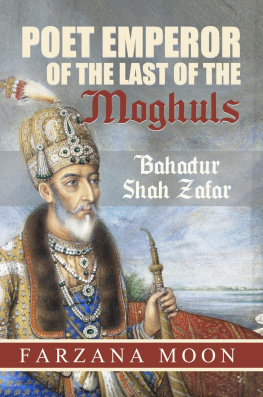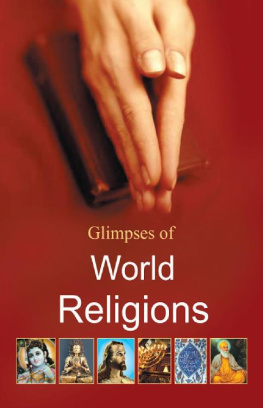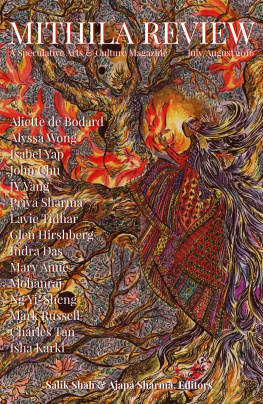Ghanshyam Shah - Social Movements in India: A Review of the Literature
Here you can read online Ghanshyam Shah - Social Movements in India: A Review of the Literature full text of the book (entire story) in english for free. Download pdf and epub, get meaning, cover and reviews about this ebook. year: 2004, publisher: Sage Publications India Pvt, Ltd -- eBooks, genre: Politics. Description of the work, (preface) as well as reviews are available. Best literature library LitArk.com created for fans of good reading and offers a wide selection of genres:
Romance novel
Science fiction
Adventure
Detective
Science
History
Home and family
Prose
Art
Politics
Computer
Non-fiction
Religion
Business
Children
Humor
Choose a favorite category and find really read worthwhile books. Enjoy immersion in the world of imagination, feel the emotions of the characters or learn something new for yourself, make an fascinating discovery.
- Book:Social Movements in India: A Review of the Literature
- Author:
- Publisher:Sage Publications India Pvt, Ltd -- eBooks
- Genre:
- Year:2004
- Rating:3 / 5
- Favourites:Add to favourites
- Your mark:
- 60
- 1
- 2
- 3
- 4
- 5
Social Movements in India: A Review of the Literature: summary, description and annotation
We offer to read an annotation, description, summary or preface (depends on what the author of the book "Social Movements in India: A Review of the Literature" wrote himself). If you haven't found the necessary information about the book — write in the comments, we will try to find it.
Social Movements in India: A Review of the Literature — read online for free the complete book (whole text) full work
Below is the text of the book, divided by pages. System saving the place of the last page read, allows you to conveniently read the book "Social Movements in India: A Review of the Literature" online for free, without having to search again every time where you left off. Put a bookmark, and you can go to the page where you finished reading at any time.
Font size:
Interval:
Bookmark:

S OCIAL M OVEMENTS IN I NDIA
| ADMK | Anna Dravida Munnetra Kazhagam |
| AEP | Adivasi Ekta Parishad |
| AFDR | Association for Democratic Rights |
| AITUC | All India Trade Union Congress |
| AIWC | All India Women's Conference |
| APCLC | Andhra Pradesh Civil Liberties Committee |
| BJP | Bharatiya Janata Party |
| BKU | Bharatiya Kisan Union |
| CITU | Centre of Indian Trade Unions |
| CMSS | Chhattisgarh Mines Shramik Sangh |
| CPDR | Committee for the Protection of Democratic Rights |
| CPI(M) | Communist Party of India (Marxist) |
| CSE | Centre for Science and Environment |
| CSV | Chhatra Sangharsh Vahini |
| DMK | Dravida Munnetra Kazhagam |
| HMS | Hind Mazdur Sabha |
| ICLU | Indian Civil Liberties Union |
| ICSSR | Indian Council of Social Science Research |
| ILP | Independent Labour Party |
| INC | Indian National Congress |
| INTUC | Indian National Trade Union Congress |
| KPSM | Kerala People's Science Movement |
| KSSP | Kerala Shastra Sahitya Parishad |
| MISA | Maintenance of Internal Security Act |
| MKSS | Mazdoor Kisan Shakti Sangathan |
| NBA | Narmada Bachao Andolan |
| NGO | Non-government Organisation |
| NHRC | National Human Rights Commission |
| OBC | Other Backward Castes |
| POTA | Prevention of Terrorism Act |
| POW | Progressive Organisation of Women (in Hyderabad) |
| PUCL | People's Union for Civil Liberties |
| PUDR | People's Union for Democratic Rights |
| PWG | People's War Group |
| RCDA | Rural Community Development Association (Tamil Nadu) |
| SC | Scheduled Caste |
| SCF | Scheduled Castes Federation |
| SEWA | Self-employed Women's Association |
| SNDP | Yogam Association for the Maintenance of Dharma founded by Shri Narayana |
| ST | Scheduled Tribe |
| TADA | Terrorist and Anti-Disruptive Activities Prevention Act |
| TISCO | Tata Iron and Steel Company |
| UGC | University Grants Commission |
| UNO | United Nations Organisation |
| UP | Uttar Pradesh |
Ghanshyam Shah is currently Fellow, Netherlands Institute for Advanced Study in the Humanities and Social Sciences, Wassenaar, The Netherlands. During a rich and distinguished career, he has been Director of the Centre for Social Studies, Surat (197685 and again from 1991 to 1996); Dr Ambedkar Chair Professor at the National Academy of Administration, Mussoorie (199697); and Professor in Social Sciences at the Centre of Social Medicine and Community Health, Jawaharlal Nehru University, New Delhi, (19972003).
Professor Shah has taught in the Department of Public Administration at South Gujarat University; and has been a Visiting Professor at the Department of Political Science at Banaras Hindu University and at the Department of Political Science, University of Chicago, among others. He was awarded the V.K.R.V. Rao prize in Political Science Research in 1979 and 1980, and the University Grants Commission National Award in Political Science in 1998. Ghanshyam Shah has authored, co-authored or edited more than 15 books, including Social Movements and the State (2002), Dalit Identity and Politics (2001) and Public Health and Urban Development: The Study of the Surat Plague (1997).

T here have been many studies on social movements in India during the last three decades, though compared to many other areas and the incidence of movements, their number is very small. A majority of the studies are recent, published after the mid-1960s. Most of them are by historians, sociologists, political activists or journalists. Political scientists have, by and large, ignored this area till recently. Historians have for long concentrated on political history, which is mainly the history of rulers and of the elite. British historians, in whose footsteps Indian historians, for good or for bad, followed, focused their studies on the activities of the British as the actors on the stage of history with India as a shadowy background (Stokes 1959). Social history came onto the scene very late. And for a long time, it limited its scope to the history of people with the politics left out. It has been largely confined to social policies of the government, educational and cultural history, social reform movements, the growth of the middle class, etc. (Bhattacharya 1982). Recently, social historians have produced very stimulating studies on social movements in general and peasant movements in particular. Sociology is a relatively new discipline. Although the first generation of sociologists maintained a broader horizon, the second generation has confined its focus to the tradition-modernity paradigm. A majority of their studies are related to kinship, caste and village society. Their interest in social movements was largely focused on Sanskritisation and socio-religious reform movements, excluding the political dimension as beyond their scope, until political sociology or the sociology of politics began to take shape in the late 1960s. Political science is still lagging behind. The Indian Journal of Political Science The situation has not changed in the 1980s and 1990s. The first trend report of research in political science commissioned by the Indian Council of Social Science Research (ICSSR) in 1971 did not include them as a topic for the review of the literature. During 1969 and 199495 ICSSR sponsored 672 research projects in history, political science, sociology and anthropology. Among these, only 17 (less than 3 per cent) were related to social movements (ICSSR 1990, n.d.).
Even those movements which have a direct political character explicitly directed against the government, not to speak of social movements in general, have largely been considered by Indian political scientists to be beyond the purview of their academic discipline. Political science in India has largely concentrated on political institutions such as the executive, legislature, parties and elections. The study of the politics of the masses, their aspirations and demands, the articulation of their problems and their modus operandi in the assertion of their demands outside the formal institutional framework have been, by and large, ignored by political science academia. However, development policies and welfare programmes, governance, etc. are on the agenda of teaching and research of Indian political science. But the focus is on the objectives and role of the government, and evaluation of the programmes rather than the processes of formulation of the policies. For instance, the policy of land reform is taught without analysing the struggles which forced the state and political parties to undertake the policy. Mrs Indira Gandhi's garibi hatao policy is not analysed in the context of the numerous struggles of the rural and urban poor in the 1960s. It is often forgotten that the functioning of the state cannot be fully understood without an understanding of the politics of the masses. Perception, beliefs, aspirations and the views of the subaltern classes can help us to define and redefine our concepts, and question our textbook-based knowledge.
Font size:
Interval:
Bookmark:
Similar books «Social Movements in India: A Review of the Literature»
Look at similar books to Social Movements in India: A Review of the Literature. We have selected literature similar in name and meaning in the hope of providing readers with more options to find new, interesting, not yet read works.
Discussion, reviews of the book Social Movements in India: A Review of the Literature and just readers' own opinions. Leave your comments, write what you think about the work, its meaning or the main characters. Specify what exactly you liked and what you didn't like, and why you think so.

